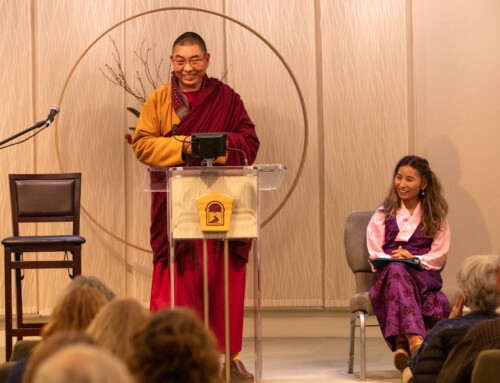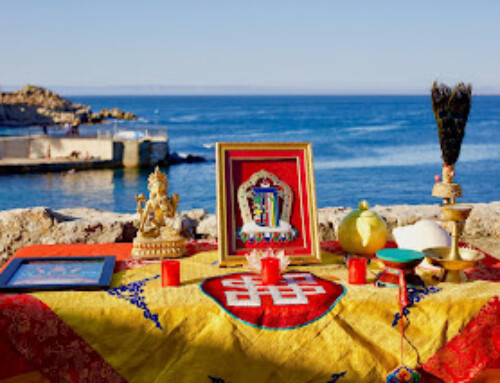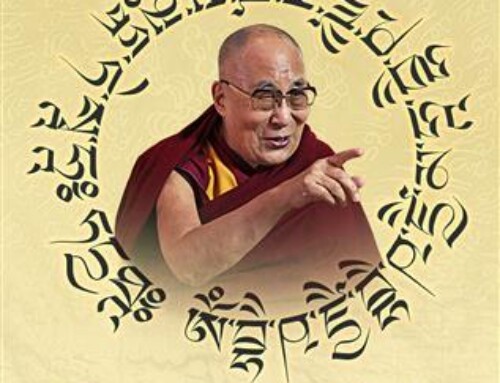Chokor Duchen Festival in Tibet is one of the four great seasonal festivals (Losar, Saga Dawa, Chokor Duchen and Lhabab Duchen) celebrated by all Tibetan Buddhists. During those times, it is believed that the effects of positive or negative actions are multiplied ten million times.
Chokhor means “Prayer Wheel” or “Dharma Wheel”, the common religious objects in Tibet, and Duchen means “great occasion” in Tibetan. Hand held wheels are hollow wooden or metal cylinders attached to a handle which when turned are believed to spread spiritual blessing. Mantras—such as Om Mani Padme Hum, believed to invoke the attention and blessings of Chenrezig, the Buddha of compassion—may be printed.
Tradition has it that Buddha was not convinced through his own reflections that teaching what he had discovered through his meditations would be of any benefit to others. It took the intercession of the great gods, Brahma and Indra, to persuade him to do so for the benefit of all sentient beings. The Buddha then addressed the five people who had been his companions during the time spent with the forest yogins concerning the Four Noble Truths:
1. The truth of suffering
The First Noble Truth often is translated as “Life is suffering.” Many people new to Buddhism tune out as soon as they hear this. But the Pali word dukkhaalso refers to anything that is temporary, conditional, or compounded of other things. Even something precious and enjoyable is dukkha, because it will end. Related to the nature of life is the nature of self. Are we not also temporary, conditional and compounded of many parts? We can understand that life is impermanent but are we, also, impermanent? The Buddha taught that before we can understand life and death we must understand the self.
2. The truth of the cause of suffering
The Second Noble Truth teaches that the cause of suffering is craving or thirst (tanha). We continually search for something outside ourselves to make us happy. But no matter how successful we are, we never remain satisfied. The Buddha taught that this thirst grows from ignorance of the self. We go through life grabbing one thing after another to get a sense of security about ourselves. We attach not only to physical things, but also to ideas and opinions about ourselves and the world around us. Then we grow frustrated when the world doesn’t behave the way we think it should and our lives don’t conform to our expectations.The Buddha’s teachings on karma and rebirth are closely related to the Second Noble Truth.
3. The truth of the end of suffering
The Buddha’s teachings on the Four Noble Truths are sometimes compared to a physician diagnosing an illness and prescribing a treatment. The first truth tells us what the illness is, and the second truth tells us what causes the illness. The Third Noble Truth holds out hope for a cure. The Buddha taught that through diligent practice, we can put an end to craving. Ending the hamster-wheel chase after satisfaction is enlightenment (bodhi, “awakened”). The enlightened being exists in a state called Nirvana.
4. The truth of the path that frees us from suffering
Here the Buddha as physician prescribes the treatment for our illness: The Eightfold Path.Unlike in many other religions, in Buddhism there is no particular benefit to merely believing in a doctrine. Instead, the emphasis is on living the doctrine and walking the path.




